- Home
- Daphne Du Maurier
The Doll Page 4
The Doll Read online
Page 4
‘Come and sit down, young fellow, and take your time,’ said the Vicar, at once assuming his manner of easy comradeship, and pushing forward a box of cigarettes. He sat down in front of his desk, crossed his legs, and prepared to listen, while the boy flung himself into an easy-chair.
‘The fact is, sir, I’m in the devil of a mess,’ he began awkwardly. ‘I hadn’t the slightest idea who to turn to, and then I remembered you. Of course in the ordinary way I should never dare to ask the advice of a parson, but you’re different. You’re so, excuse my cheek, you’re so, well, damn broad-minded!’
The Vicar’s heart warmed to the usual praise. ‘I’ve been young myself once,’ he nodded sympathetically, and he let his eyes wander vaguely towards the various photographs in the room. This boy must be made to understand that he was talking to no raw hand, in fact—
‘It’s about a girl,’ Cranleigh went on. ‘A girl I met at Oxford last term, just before the long vac. She was nobody, you know, just acted as companion to some old lady, and I met her first of all when I was fooling about on the river. She was with a friend, and I was with another fellow, so we all sort of chummed up. Well, after that I began to see her pretty often, and got desperately keen on her. Of course I dare say I wouldn’t have looked at her if I’d been in London, but up there it’s different. She was mad about me too, though I say it myself, and then – oh, Lord, I’m afraid I made a colossal ass of myself. Well, sir, I lost my head one night. I don’t know how it happened, but it did – we were in a boat, and it was a glorious evening, and—’
‘I know,’ said the Vicar, his voice full of meaning; ‘I was at Oxford too, over twenty years ago.’
The boy smiled, it was being easier than he expected. ‘Well, you understand me, sir, I kind of couldn’t help myself. Then very soon afterwards we came down, and I didn’t see her again. Last week I got a letter from her; it was pretty awful, and she said she was going to have a baby.’
The Vicar sighed gently. ‘Yes?’ he asked.
‘Of course I arranged to meet her, last Tuesday evening, and it’s absolutely true, sir; she’d been to a doctor and everything. I was in a terrible state, and said I’d give her money and help her to get away somewhere; but – this is the awful part – she doesn’t want money, she wants me to marry her.’
The Vicar raised his eyebrows. ‘And what did you say to her?’ he inquired.
‘Well, naturally, I said it was impossible. How could I marry her? She’s pretty and sweet, but I’m not sure she’s even a lady, and I don’t really love her. Besides, what on earth would the family say? When the old man dies I come into the title, and I’ve got to think of all that, although it sounds beastly snobbish. It would be madness to marry Mary, you must see my point?’
‘My dear fellow, of course I do. There shall be no question of marriage as far as I’m concerned. And you say she refuses money?’ His tone was brisk now, alert, that of a shrewd man of the world.
‘Absolutely, sir; she went white when I suggested it. Apparently she doesn’t seem to mind having the baby, she says she’ll live for it, and she wants me to marry her so as to give it a name. She’s still most awfully in love with me, and she doesn’t seem to understand that I don’t care any longer. If she goes to my people there will be the most colossal row. Thank heaven, she hasn’t told a soul yet. Look here, sir, what on earth am I going to do?’
The Vicar was thinking rapidly. If he helped him out of this mess the boy would naturally be very grateful. He knew the family were rich, and the Earl was said to be in a wretched state of health. Cranleigh Castle was one of the beauty spots of England, he would be invited often: the Countess herself was an ardent politician – yes, everything would be comparatively easy. He rose from his chair, and going over to the boy he laid his hand on his shoulder. ‘My dear chap,’ he said, ‘if you will trust me I am certain I can manage the whole wretched business for you. There is no need for your family to know, we have your future position to think of; as for the girl, she will understand the whole situation when I have explained it tactfully to her. I will look after her. Don’t worry any more about it; all I want you to do is to give me her address.’
‘Mary Williams, sir. She’s staying in a boarding-house in St John’s Wood, it’s on the telephone under the name of Datchett – that’s her sister, she keeps the place. Oh! good Lord, you are the greatest brick; I don’t know how I’m ever going to thank you enough.’
The Vicar smiled and held out his hand. ‘It’s only because I understand so well what you have gone through,’ he said gently.
The man must have been a bit of a dog in his day, thought the boy; odd for a clergyman. ‘I think I’ll try and get away for a bit, until it’s all blown over; but don’t forget you’ve got to come down to Cranleigh directly I come back – we’ll have a shot at the birds.’
When he had gone the Vicar went back into his study, and lifted the telephone receiver. He believed in doing things on the spot.
He looked up the number in the book.
‘Is that Mrs Datchett’s? Could I possibly speak to Miss Williams? Yes. Thank you . . . Hullo? Is that Miss Williams speaking? My name is Hollaway, James Hollaway. I’m the Vicar of St Swithin’s, Chesham Street. I’m a great friend of Lord Cranleigh’s. He has just left me . . . Yes. Would you be so good as to come and see me this evening at six o’clock? I should very much like a little talk with you, I wish to help you. Yes, he has told me everything. No, you have nothing to be frightened of. Then that is settled? Twenty-two Upper Chesham Street. Thank you. Good-bye.’
He hung up the receiver, and wandering to his desk he glanced at The Times.
Hallo, George Winnersly was dead at last. He must write to Lola. She was getting a bit passée now, of course, but she was still lovely. Funny the way she went religious all of a sudden. Must have come as a sort of anti-climax. She was always at St Swithin’s at one time; he could remember once – However, that was all over.
He began to run over in his mind conventional phrases of consolation: ‘immeasurably grieved,’ ‘unspeakable loss,’ and ‘the consolation of God.’
He yawned a little as he took up his pen.
‘My dear daughter-in-Christ,’ he began.
‘Hollaway, you’re a regular mascot, and I don’t mind telling you I feel a lot more sure of myself now I’ve had this talk with you. Have a cigar?’
The Vicar declined. ‘Sorry, but I haven’t the time. I’m a busy man, you know, and I’m shortly due at a hospital in the slums. I’m very glad to have been of use to you, my dear Colonel, I understand so well what you are going through.’
His voice was full of the deepest sympathy.
The lunch at the Carlton had been a great success. His host was Colonel Edward Tracey, the Conservative candidate in the West Storeford by-election, and as polling day was on the following Monday the Colonel was nervous and agitated.
West Storeford was an important seat and the Colonel a powerful man; if he was returned he would owe many of his votes to Hollaway, who had been one of his most ardent canvassers.
And he would be returned, of this the Vicar was certain. He was feeling very pleased with himself. ‘There’s not the slightest doubt about it,’ he said warmly, ‘the majority of voters in West Storeford are intelligent men and women. They know when they see a leader, and that’s what they’re after. Never mind if he’s a Conservative, a Liberal, or a Socialist. Luckily for them you’re a Conservative. My dear Colonel, I’ve heard you speak, and I know what I’m talking about. When you’re in the House you’re going to make those lazy fellows sit up. Lively times, eh! Wait till you are a Cabinet Minister!’ He lowered his tone, and winked significantly.
The Colonel flushed all over his face with pleasure.
This parson was an amazingly good fellow, and when he was in Parliament he would remember to show his gratitude. He called for his bill, and the waiter brought the white slip of paper on a plate. The Vicar turned his head away discreetly, and bowed gallantly to a re
vue artiste who was just leaving the room. ‘Pretty as ever, aren’t you?’ his eyes seemed to say. Then he rose from the table. ‘My dear Colonel, I must leave you; I had no idea it was so late. This has been very delightful, and I shall be the first to congratulate you Monday night. No, don’t bother to come out.’
He walked slowly across the room, his head a little to one side, his chin in the air.
Many people turned to watch him as he walked past.
The Vicar was aware of the disturbance he had caused. At the opening of the Royal Academy he had been taken for a distinguished actor.
He handed half-a-crown to the cloakroom attendant, and then stepped out into the street, where his Wolseley car was waiting. ‘Drive to the East London Home for Disabled and Paralysed Men, and be quick about it,’ he said to the chauffeur.
He leaned back, and let himself relax, as the car sped through the City. These weekly talks were rather a strain on the mind. The men were often surly and disinclined to listen, but he flattered himself he generally made an impression. He remembered last year at Pentonville, when a boy had taken a fancy to him. The whole thing had really been rather amusing, not only did he— but his car drew up in front of the Home, and his train of thought was interrupted.
He was greeted by a smiling nurse. ‘We were afraid you were not coming, Mr Hollaway.’
‘I had great difficulty in getting away at all, Sister. I was obliged to break up a very important political lunch, much to everyone’s annoyance.’
There was no need to mention he had been the only guest, these nurses took everything so much for granted.
‘We’ve got twenty-five of them up in the big ward, Mr Hollaway, and I must say I’m very glad you can spare them an hour. They get so dull and lifeless, I know you will cheer them up.’
The Vicar felt a little doubtful as he entered the ward. A quarter of the men were in bed, lying prone upon their backs, while the rest were in invalid-chairs, propped up with cushions.
A little doctor came forward hurriedly.
‘My dear Vicar, this is too good of you. The men have been looking forward to your visit with the greatest pleasure. You’ve no idea,’ he added in a lower tone, ‘of the amount of good these talks can do. It puts new life into them, and it helps us more than I can say. They are very difficult sometimes, aren’t they, Sister?’
He turned to the nurse, who nodded her agreement. The Vicar took her hand. ‘I know so well what you must go through,’ he murmured.
Then they left him alone with the men, and he plunged into his rôle of humorist and consoler. His cheerful voice and his delightful personality soon won the attention of the little group of men, doomed for the rest of their lives to lie on their backs, and to gaze at the ceiling.
‘Because I’m a parson, there’s no need for you to be shy of me, my lads,’ he said, with his well-known infectious laugh. ‘I’ve gone through a lot in my time, and I’ve talked and lived with every kind of fellow under the sun. Why, bless you, I feel exactly the same as all you men here, and I know and understand everything you don’t tell your nurse and doctor.
‘You don’t know what a joy it is to me to come and talk to you this afternoon. It reminds me of the old days in France.’ (Oh, shades of Paris!) Soon he had them all laughing at his stories, gleaned from every corner of the globe.
Good healthy humour, he told himself, and he warmed to his subject. Even the old chestnuts of four or five years ago were new here, he discovered. From these he went on to contemporary events. He discussed racing, boxing, cricket, and even politics with the more serious.
From politics it was an easy step to the apparent powerlessness of the Church to-day in State affairs, and from thence to religion, which he had really come to talk about.
The men of course had expected this; he was a parson, and now that they had heard his opinions on other subjects they were willing to listen to him in silence for the last half-hour that remained.
This afternoon the Vicar surpassed himself in eloquence, never had the life of the virtuous sounded more full of possibilities, never had the life of the sinner shone so dull in comparison.
‘The world is so full of glorious opportunities to-day,’ he said, in rich persuasive tones; ‘we have every chance to better ourselves, to improve our minds, to give the best in exchange for the best.
‘In enjoying the great facilities that are now open to us, I think we are apt to forget the Creator of it all.’ The men blushed awkwardly, they were not quite sure what he was talking about. The Vicar felt he was swimming slightly out of their depth, so he returned to safer channels.
‘What we forget,’ he said, smiling his brilliant smile, ‘is that Our Lord came to earth a man like ourselves. He felt all the pains and miseries that we feel. He underwent the troubles and vexations that we undergo. It is because we no longer remember this that we do not take our burdens to be lifted from us by One Who above all others can understand and help us. There has never been anyone so human as Christ. For well over thirty years He was a man amongst other men, a poor working man, the son of a carpenter. What do we know of that early life? Practically nothing. But we are sure it was a mixture of joy and sorrow such as falls to the lot of each of us. And in that part of His life that has been revealed to us through the medium of the Blessed Gospels (he lowered his voice suitably) there is full, unbounded proof that His feelings were those of a man.
‘His adoration for Our Lady, the affection for Lazarus, the friendship for His disciples, the understanding of poor Magdalene – are these not all signs of His glorious Humanity? He was fond of animals and children; He talked with sinners.
‘Remember the anger in the Temple and the distrust of the Pharisees; these all show those human qualities so dear to us. And lastly, in the Agony and Death on the Cross, were not His last cries those of a man?’ The Vicar paused, a little out of breath. The men were obviously impressed, he had been victorious again.
Then a voice spoke from the far corner of the room. It came from a grumpy old man who had taken no part in the conversation.
‘I thought Christ was the Son of God,’ he said. There was an awkward silence, and for the moment the Vicar was a little taken aback.
Then ‘He was,’ he said gently; ‘He was.’ But it was too late: the spell had been broken. He left the room sensing defeat.
‘Will you see a Miss Williams, sir?’ said the butler, coming into the study shortly after six.
‘Oh! yes, Wells, show her in. I was expecting her, but I forgot to tell you.’
The Vicar finished a much-needed whisky-and-soda, and placed the empty glass in a small cupboard built especially for that purpose.
Mary Williams came into the room.
She was small and dark, and though she was not looking her best he could see that she was very pretty. She was neatly and simply dressed, and there were dark shadows under her eyes.
‘Will you sit down?’ he said courteously.
The girl obeyed silently, and waited for him to speak. He cleared his throat, the situation intrigued him.
‘My dear child,’ he began gently, ‘I want you to look upon me as an elder brother, as one who knows the world far better than you do, and who every day tries to do his best, alas a very poor best, to lighten the responsibilities of those around him. And besides thinking of me as a brother, you must remember that I am a priest, and in that capacity I am capable of guarding over your spiritual as well as your earthly welfare.’
He paused. The girl made no reply, but stared at him with scared eyes.
‘And thus,’ he continued, ‘I want you to tell me in your own way the story that Lord Cranleigh told me this morning; and spare no detail, however irksome it may be to you,’ he added.
The girl blushed and lowered her eyes. ‘I met Tommy first one day last term,’ she began in a low tone. ‘I was with a friend, we had hired a boat. He must have told you all this already. I was a companion to a Mrs Grey at the time, who lived in Oxford, and she went abroad alone a
s soon as the University went down for vacation.
‘Tommy and the other man spoke to us that day because we were all sheltering under a tree during a heavy shower, and we soon got friendly, and laughed and joked together. We all had tea I remember.
‘Then we arranged to meet again, and afterwards I always went out with Tommy whenever I could get away. Very soon he told me that he loved me. I should not have listened to him, I suppose, but I could not help it; and when he kissed me for the first time I knew I loved him better than anything in the world. We used to make plans about all the wonderful things we would do in the vacation, and I thought – I didn’t understand – I thought he meant he wanted to marry me.
‘Every day I think I loved him a little more, and then – the night on the river – I forgot everything when he began to kiss me.
‘He told you, I expect – I was so ashamed – I don’t know how it happened,’ she faltered.
The Vicar passed his hand over his mouth to hide his smile. Tame excuse – didn’t know how it happened! Apparently not, or she would not be sitting there in front of him now.
‘Yes,’ he murmured, closing his eyes and sighing. ‘Yes?’
‘A day or two after that Tommy went down. Mrs Grey went abroad, and I stayed with friends in the country. I wrote to him nearly every day, but I never had a reply. I couldn’t understand why he didn’t write, I was so certain that he meant to marry me. I began to feel wretched and unhappy at the same time, my friends told me I was looking pale.
‘Still no news from Tommy, though I knew he was in London, I saw something about his having been to a dance somewhere. Then one day I fainted – luckily no one was about – but I was frightened at once, and I went up to London in secret and saw a doctor.
‘He – he told me what was the matter. I know it was wicked of me, but somehow I didn’t seem to mind. I knew that Tommy would marry me now. I wrote to him, and went to stay with my sister in St John’s Wood. When I saw Tommy he told me that he couldn’t possibly marry me.
‘I don’t understand even now, my mind refuses to take it in. Please, Mr Hollaway, will you tell me what he said to you this morning? You see, I love him so terribly, and I can’t do without him – now.’

 Jamaica Inn
Jamaica Inn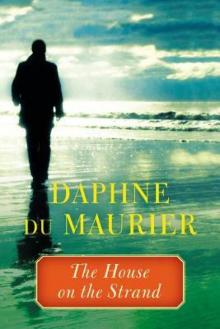 The House on the Strand
The House on the Strand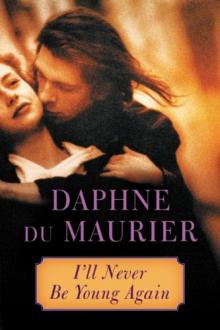 I'll Never Be Young Again
I'll Never Be Young Again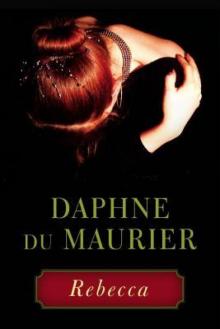 Rebecca
Rebecca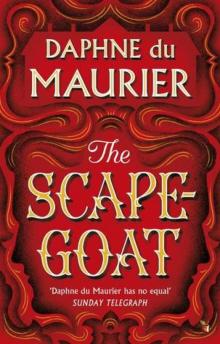 The Scapegoat
The Scapegoat The Birds and Other Stories
The Birds and Other Stories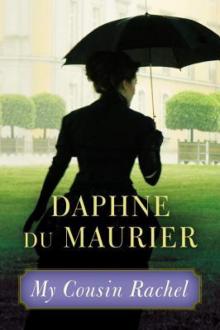 My Cousin Rachel
My Cousin Rachel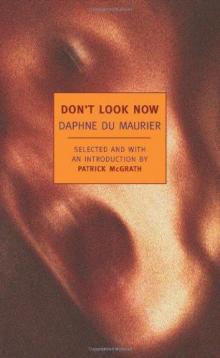 Don't Look Now
Don't Look Now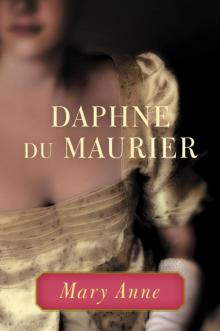 Mary Anne
Mary Anne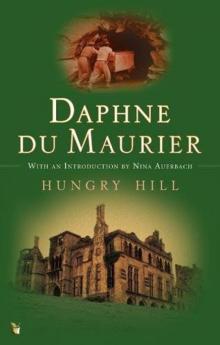 Hungry Hill
Hungry Hill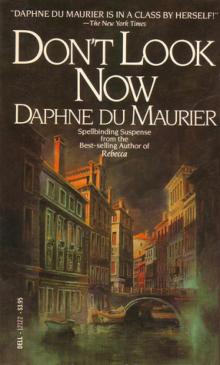 Don't Look Now and Other Stories
Don't Look Now and Other Stories The Loving Spirit
The Loving Spirit Rule Britannia
Rule Britannia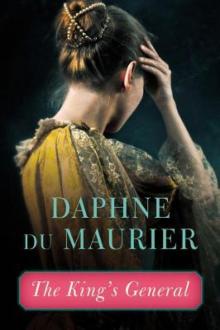 The King's General
The King's General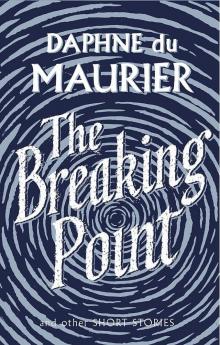 The Breaking Point: Short Stories
The Breaking Point: Short Stories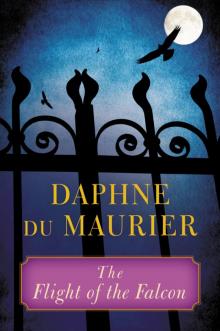 The Flight of the Falcon
The Flight of the Falcon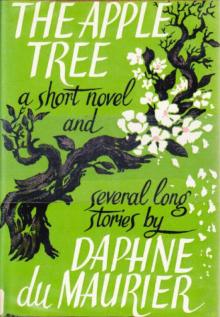 The Apple Tree: a short novel & several long stories
The Apple Tree: a short novel & several long stories The Breaking Point
The Breaking Point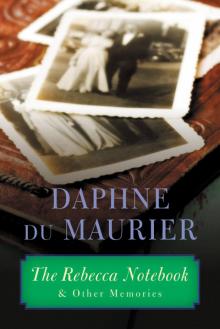 The Rebecca Notebook
The Rebecca Notebook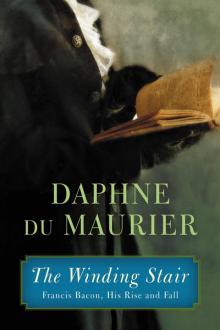 The Winding Stair: Francis Bacon, His Rise and Fall
The Winding Stair: Francis Bacon, His Rise and Fall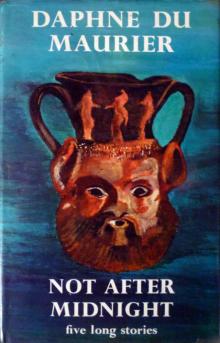 Not After Midnight & Other Stories
Not After Midnight & Other Stories The Doll
The Doll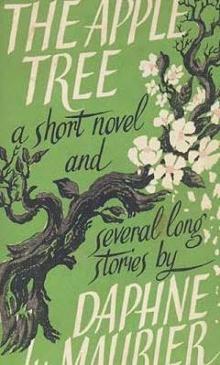 The Apple Tree
The Apple Tree